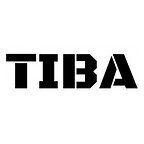TIBA AMA Recap #2 — LibraChina & pLibra
This post was originally published on blog.thu-tiba.org
On the 21st of August, TIBA held the second event of its #AMA series. We are going to host regular ask me anything sessions with fascinating blockchain projects from China and around the world. We’d like to give the international community direct access to these projects and a chance to ask whatever you’re interested in. Scan the QR code below to get invited to the TIBA #AMA WeChat group and find out more!
Our guest on the 21st was Hang Yin, co-founder and lead developer behind the Bitcoin Gold (BTG), LibraChina, and pLibra projects.
Hang started the BTG project in 2017, aiming to solve the problem of miner centralization in Bitcoin. In 2018, he decided to work on blockchain full-time. To him, the two main obstacles to mainstream adoption were scalability and privacy. Many new projects focus on the former, including our last guest Conflux. On the other hand, Hang’s main focus has been the confidential smart contract technology powering the pLibra project.
But first, what is LibraChina? LibraChina is a community-led project, co-founded by our guest Hang. Their goal is to promote the technology behind Libra by producing content, hosting meetups, and building open-source applications on top of Libra. They developed, for instance, the first open-source Libra explorer, LibraBlock.
So why did the team choose Libra as their platform? Hang believes that Libra might be the first blockchain that has real potential for massive adoption. While Libra does introduce some technological innovation, its main strength is that it has Facebook behind it, a company that can provide billions of users out-of-the-box. Hang expects to see Libra bring us new blockchain-based business models and more collaboration across country borders.
However, Libra has an issue, and it is privacy. Calibra, a Libra wallet built by Facebook, is still centralized and it requires KYC for all the users. ”Theoretically nothing can stop Facebook to use the data they collected on their projects” Hang claims. Facebook is also notorious for recent privacy issues and data leaks.
pLibra (where p stands for privacy), is the LibraChina team’s solution to this problem. They use confidential smart contracts, which provide a privacy-preserving token pegged to Libra. People can essentially store their Libra in the pLibra contract and execute confidential transactions within pLibra’s system. Moreover, pLibra is connected to Polkadot, a popular cross-chain network. This means that we get free interoperability with other connected blockchains.
How would governments react to such a privacy-focused technology? Hang claims that regulatory compliance can be built into the smart contracts. As for Libra’s issues in the US, he’s optimistic: ”Basically the US will not be against Libra once the regulatory problems are fixed.”
Changing the subject to China, Hang believes Libra would have a hard time establishing official presence over here, but it might still have an impact on the local blockchain scene.
“As you can see, right after the launch of Libra, Binance announced their Libra today, and there are rumors that China central bank is speeding up the development of their CBDC.”
However, he’s skeptical of the ability of any of these projects to replace Alipay or WeChat Pay.
At the end of our AMA, the LibraChina chose their three favorite questions. Below, we present these questions and Hang Yin’s answers to them.
pLibra vs government
Libra vs Binance
Providing for the unbanked
We would like to thank all our community members for their great questions and contribution!
If you wanna learn more about these projects, check out LibraChina, pLibra, and LibraBlock. You can also follow LibraChina on Twitter or Weibo, or join their newly established WeChat group by scanning the QR code below.
To learn more about our upcoming TIBA events and join the discussion, scan the QR code below!
This article was written and edited by Péter Garamvölgyi.
